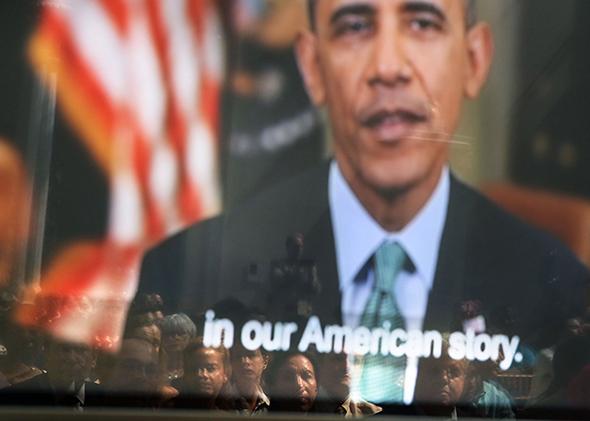President Obama is reportedly putting the final touches on a plan to shield as many as 5 million unauthorized immigrants from deportation. An official announcement of his long-promised plan may come as soon as Sunday, or the president could wait until after Congress passes legislation in early December to keep the government running. Either way, the White House says, an executive overhaul of the nation’s immigration system is coming this year.
This is a big deal. While we don’t yet know how many people who will be directly affected by his executive actions, it’s expected to exceed the 1.5 million covered by the Deferred Action for Childhood Arrivals (DACA) program, which the president created in 2012 to allow so-called Dreamers to apply for work permits and reprieves from deportation. If Obama goes as big as his advisers have suggested, his executive orders could cover nearly half of the estimated 11.7 million immigrants currently living in the country without authorization.
This will also be a huge deal politically. Republicans have already, to varying degrees, threatened to shut down the government to block the reforms. Democrats, meanwhile, are openly fantasizing about how this immigration overhaul could add a whole lot of blue to the electoral map in 2016 and beyond.
But given all the hype you’ll hear from the left and the right—both of which have plenty of motivation to paint the president’s move as either extraordinary (Democrats) or extralegal (Republicans)—it’s important to remember that the bulk of Obama’s actions will be temporary. There’s no guarantee that they’ll remain in place after he leaves office in two years. What happens after that will be in the hands of the next president.
Here’s what we know based on the rough sketch the administration has already provided to the New York Times and the Associated Press. The most sweeping action the president will likely take is to extend DACA-like reprieves to particular groups of unauthorized immigrants, the largest of which will probably be parents of children who are U.S. citizens or permanent residents. Such a reprieve would temporarily protect them from the threat of deportation, but it wouldn’t remove that threat forever. Despite what conservatives are suggesting with their talk of “executive amnesty,” the president doesn’t have the unilateral power to make someone a U.S. citizen or permanent legal resident. As Gregory Chen, the advocacy director for the American Immigration Lawyers Association, explained to the Center for American Progress this summer: “[Obama] can’t simply say, ‘I’m going to change the criteria for a green card and give it to people I think should be eligible, such as someone who has lived here for five years and is contributing well to the community.’ ”
Like DACA, Obama’s forthcoming plan will be based on “prosecutorial discretion,” which affords a president plenty of wiggle room to decide how he wants to enforce the laws that are on the books. While such a move is supported by plenty of legal precedent, it’s also fleeting by nature. Once Obama leaves office, that prosecutorial discretion will fall to his successor, be that President Hillary Clinton, President Chris Christie, or anyone else.
There is one group for whom Obama’s actions could have a more lasting impact: those unauthorized immigrants whose spouses are U.S. citizens or legal residents. Most people in that group are technically eligible to apply for a green card already, but only if they first leave the country and wait out what’s typically a lengthy separation from their family. Obama could offer what is known as “parole in place” to that group, allowing them to stay in the country legally while the green card process plays out. He did a similar thing last November for undocumented individuals with immediate family members serving in the U.S. military. Anyone who has a green card in hand before the president leaves office in early 2017 wouldn’t have to worry about losing it if the next president changes course.
The number of immigrants who fall in that category, however, is much smaller than those in the category of parents of children who are U.S. citizens or permanent residents. According to the Migration Policy Institute, there are approximately 1.5 million unauthorized spouses of U.S. citizens or permanent residents, compared to 3.6 million parents.
All of which is to say that, yes, Obama’s forthcoming announcement will be incredibly important to a huge number of people. It will affect millions of immigrants directly and millions more indirectly, and it will also set a precedent that the next president will have to grapple with. But as the Washington hype machine kicks into high gear over the next several weeks, keep in mind that the bulk of Obama’s moves will not be permanent ones. Real, lasting change to our immigration policy can come only from Congress. The president has already told lawmakers that. The problem, though, is they appear in no hurry to listen.
